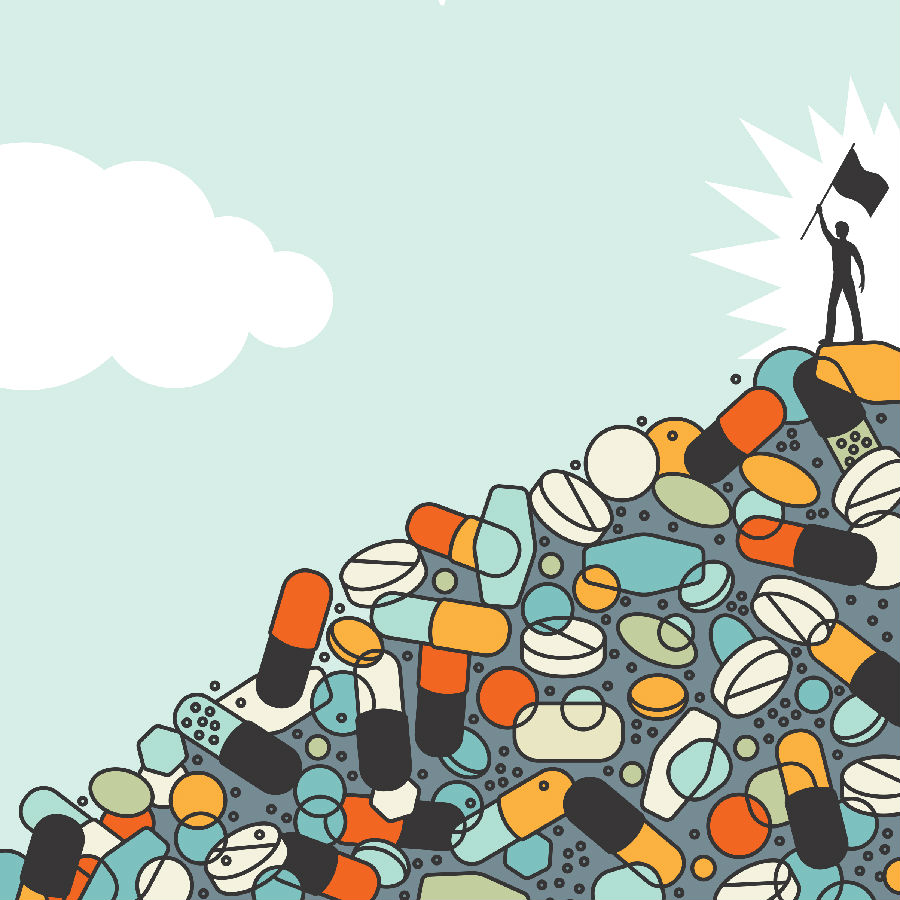There is no cure for HIV—but scientists may be getting closer
科學家們雖然無法根治艾滋病- 但希望還是有的
By Alice Park
文/愛麗斯·帕克
CURE ISN’T A WORD NORMALLY USED IN THE CONTEXT OF AIDS.
“根治”一詞通常不適用于艾滋病這一語境。
For most of the 35 years since HIV, the virus responsible for the disease, was first identified,
自艾滋病病毒,也即誘發艾滋病的病毒,被首次發現以來的35年間,
doctors have viewed the notion of a cure as more fantasy than fact.
大部分時間醫生們都認為根治艾滋病的概念更像是一種幻想而非事實。
That’s because HIV is a virus unlike any other.
這是因為艾滋病病毒不同于其他任何一種病毒。
It disables the very immune cells that are supposed to destroy it and also sequesters itself in the body’s cells,
它能摧毀原本應該反過來摧毀它的免疫細胞,然后將自身隔離在人體的細胞中,
staging the ultimate deadly ambush whenever the immune defense’s guard comes down, months or sometimes even years later.
準備著發動最后的致命伏擊,只等免疫系統受損,無論是數月之后還是數年之后。
Yet for the first time in the HIV epidemic that currently affects nearly 37 million people worldwide,
然而,就在目前影響著全世界近3700萬人的這一流行病領域,
some experts are starting to aim for a cure—cautiously—as they fashion the next generation of HIV treatments.
一些專家率先開始了 - 謹慎地開始了- 艾滋病的根治研究,研制出了新一代艾滋病療法。
Scientists now understand how HIV burrows itself inside cells and remains cloaked from the immune system’s watchful gaze—
科學家們現在明白了艾滋病病毒是如何隱藏在細胞內,躲過免疫系統的巡視的——
and they have some ideas about how to expose and annihilate it.
也有了一些關于如何暴露并消滅它的想法。

The National Institutes of Health (NIH) is funding HIV cure efforts based on this new knowledge,
美國國立衛生研究院(NIH)目前正在資助一個基于這一認識研發根治艾滋病方案的項目,
and advocacy groups like amfAR are also pouring resources into not just treating HIV, but also finding ways to eradicate it completely.
此外,amfAR等游說團體也開始為艾滋病日常治療以及尋求徹底根除艾滋病病毒的項目提供資源方面的大力支持。
"Absolutely HIV can be cured,” says Rowena Johnston, vice president and director of research for amfAR. "The bazillion-dollar question is how."
“艾滋病是可以根治的,這一點是毫無疑問的,”amfAR副總裁兼研究主任羅威娜·約翰斯頓說到。“關鍵是如何根治。”
Doctors today have no trouble keeping HIV under control in people who are infected, thanks to antiretroviral (ARV) drugs,
今天的醫生可以毫不費勁地控制住艾滋病患者的病情,多虧了抗反轉錄病毒藥物的發明,
which stop the virus from replicating once it finds its way inside healthy cells.
這種藥能夠阻止進入健康細胞的病毒進行復制。
If it is not making more copies of itself, HIV cannot spread to infect new cells.
如果不能復制出更多病毒,艾滋病病毒就無法擴散感染新細胞。
That translates into healthier, longer lives for people who are HIV-positive.
這就意味著艾滋病毒陽性患者能生活地更健康、更長壽。
Yet as powerful as the current drug treatments are, they need to be taken daily to keep the virus suppressed,
然而,盡管目前的藥物治療已經非常強大了,患者還是需要每天服用才能控制住病情,
and they can’t actually rid the body of infected cells.
這些藥也并不能幫他們擺脫被感染的細胞。
For selfpreservation, some HIV does not actively pump out more copies of itself, but instead lies dormant inside certain immune cells.
為了自我保護,一些艾滋病毒并不會主動進行復制,而是在某些免疫細胞內保持休眠狀態。
"The drugs are remarkably good at stopping the virus from replicating,”
“這些藥物阻止病毒復制的效果非常好,”
says Dr. Robert Siliciano, professor of medicine at Johns Hopkins University School of Medicine, who first identified these sleeping virus reservoirs.
約翰斯·霍普金斯大學醫學院醫學教授羅伯特·希利西亞努博士說,就是他率先發現了這些休眠病毒的。
"The problem is that there is also a form of HIV that is not replicating and is latent, that is not affected by the drugs and not seen by the immune system."
“問題是,還有一種艾滋病病毒是潛伏在細胞內而不復制的,這種病毒是藥物影響不到,免疫系統也察覺不到的。”
These are the viruses that come roaring back when people stop taking their medications, or take them erratically.
患者停止服用藥物或服用藥物不規律時,這些病毒就會卷土重來。
譯文由可可原創,僅供學習交流使用,未經許可請勿轉載。


